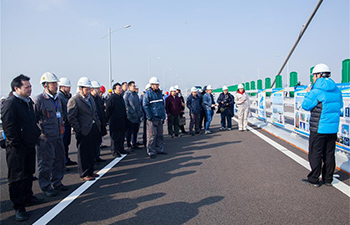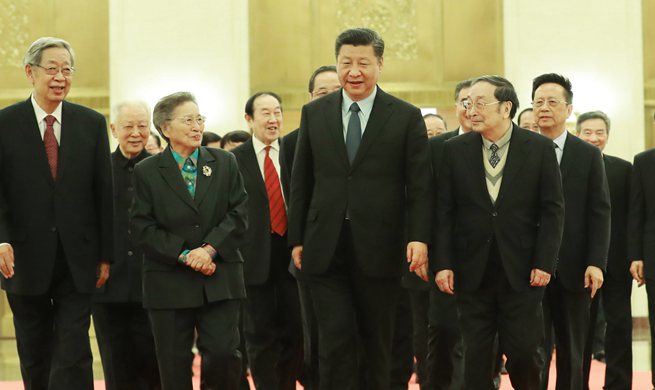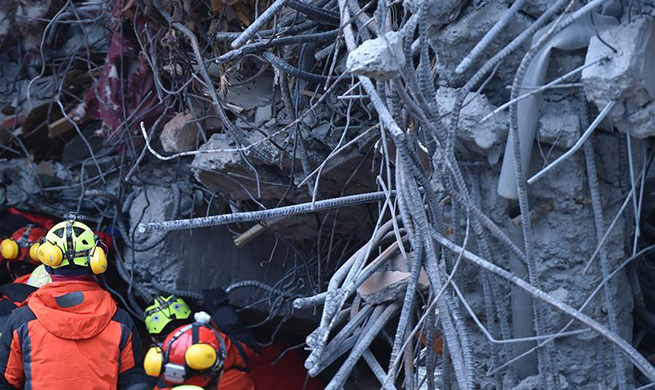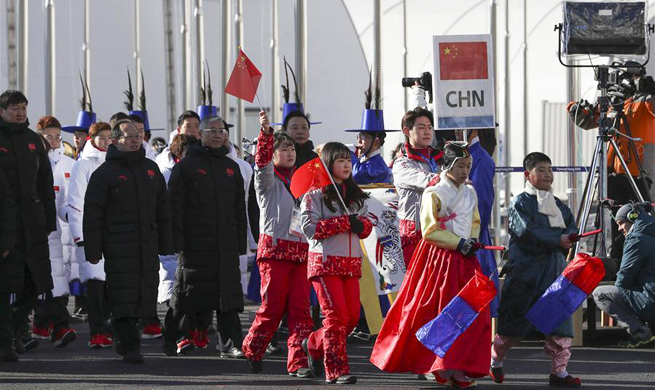ULAN BATOR, Feb. 7 (Xinhua) -- The International Monetary Fund (IMF) sees Mongolia's economic outlook "positive" in 2018 and 2019 after its working group visited the Asian country to evaluate the economic bail-out program.
Mongolia's economic growth was higher than expected, said Geoff Gottlieb, who led an IMF team to Ulan Bator, the capital city of Mongolia from Jan. 24 to Feb. 6.
During the evaluation trip, Gottlieb and his team discussed, with the related authorities of Mongolia, the third review of the three-year Extended Fund Facility (EFF) arrangement approved on May 24, 2017, in an amount equivalent to about 434.3 million U.S dollars.
The arrangement is part of 5.5 billion dollars from donor countries, including Japan and South Korea, to support stabilizing the economy and lay the basis for sustainable, inclusive growth.
Mongolia has pledged to end expansionary monetary policies, enforce austerity measures, raise some taxes and reduce welfare spending.
"Mongolia's economy is recovering, reflecting strong international demand for commodities and improving confidence; key macro-economic quantitative targets, including the fiscal deficit and international reserves, have been achieved by large margins," Gottlieb said in a statement.
"However, there are several risks to economic growth. In particular, there is a tendency that external demand for raw materials might reduce and oil price increase," Gottlieb said.
The IMF team leader urged the Mongolian authorities to continue building buffers and implementing the structural reforms necessary for high and sustainable growth.
"Thanks to the IMF's program, many positive changes have been observed in the Mongolian economy," Mongolian Finance Minister Chimed Khurelbaatar said.
"Last year, our economic situation was difficult. Foreign exchange reserves accounted to 1 billion U.S. dollars. Early 2017, we paid 580 million U.S. dollars for bond repayment and we faced a lot of difficult situations," said Khurelbaatar.
"However, with implementing the IMF's program, the economy has recovered and even grown by 5 percent over the past period. Foreign currency reserves exceeded 3 billion U.S dollars, and we drew foreign direct investments of 1.1 million U.S dollars," said Khurelbaatar.
The minister also noted that Mongolia's budget revenues exceeded 600 billion MNT or tugrik (246.3 million dollars).
"In 2018 and 2019, a decision was made on increasing salaries in line with the inflation rate," he said.
The IMF has noted that its program helped resolve Mongolia's foreign debt issue in a positive way, and Mongolia's foreign currency reserves increased by 1.8 billion dollars.
In late November, Khurelbaatar said Mongolia's economic growth was expected at 1 percent in 2017 and 4.2 percent in 2018.
The IMF has predicted Mongolia's GDP growth at 5.0 percent in 2018 and 6.3 percent in 2019.

















